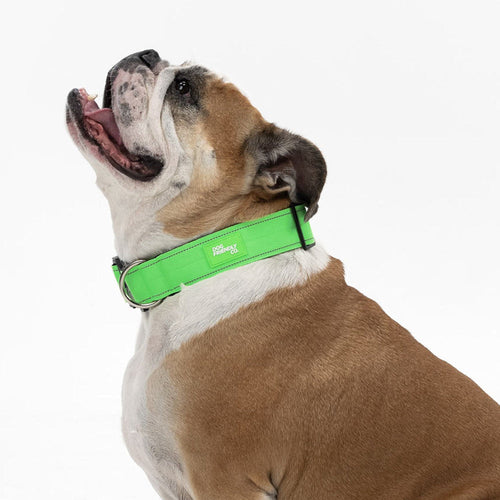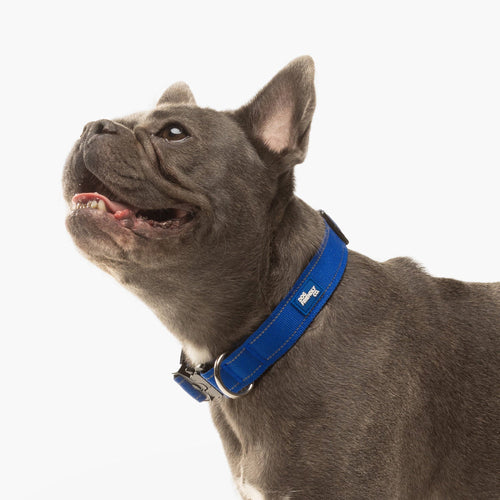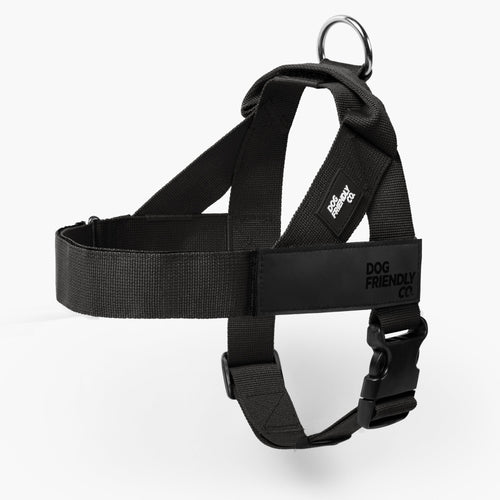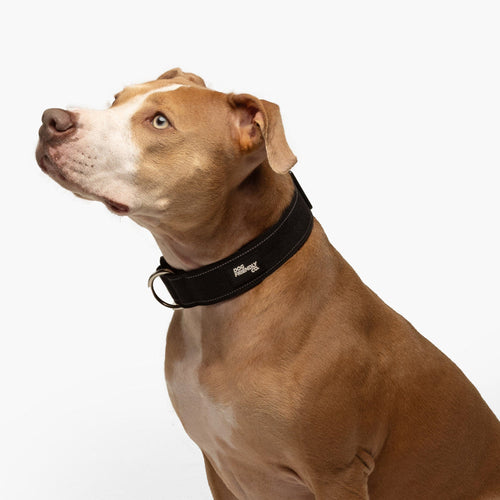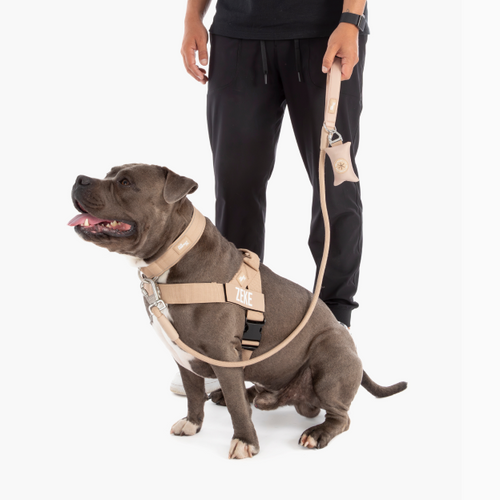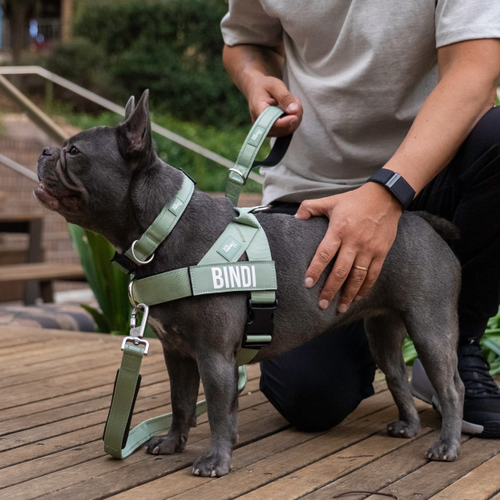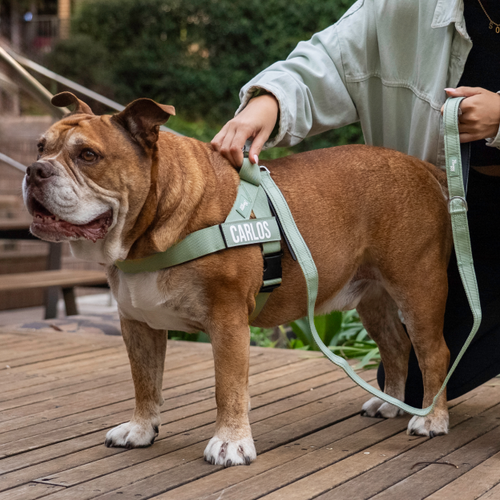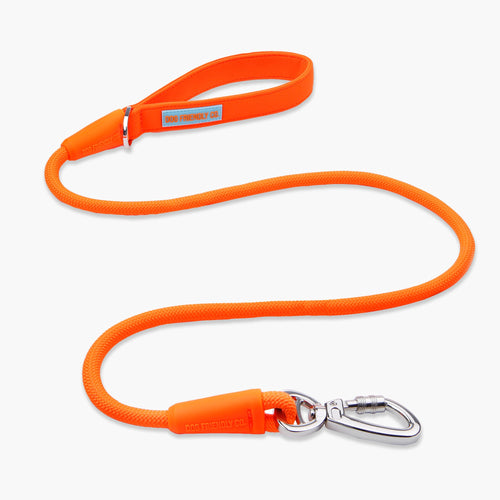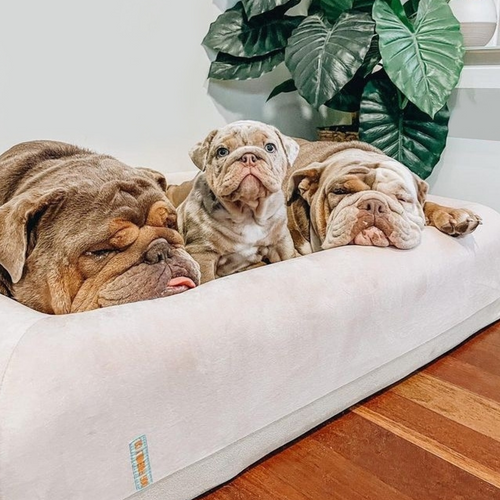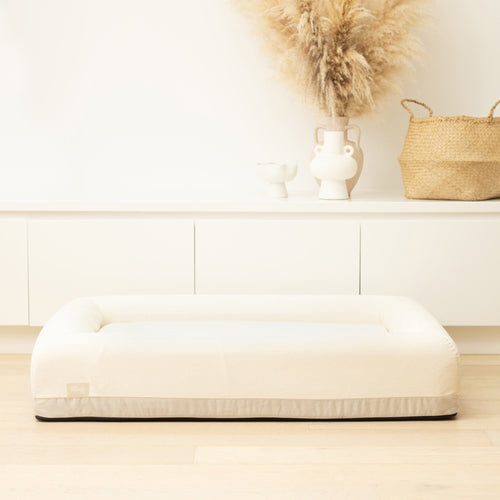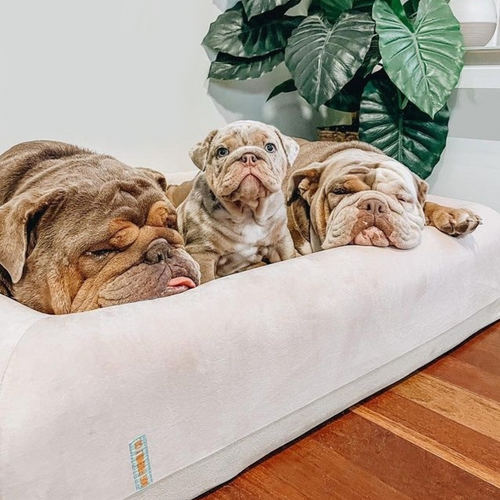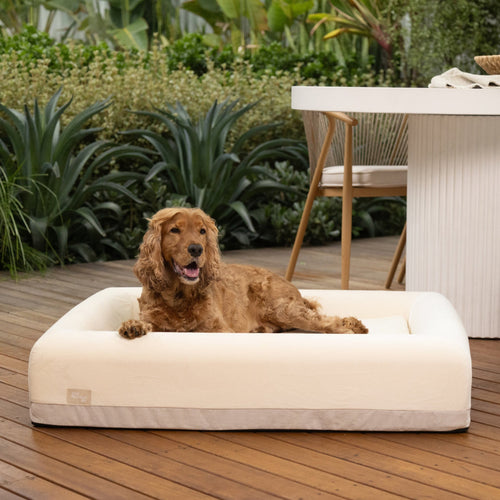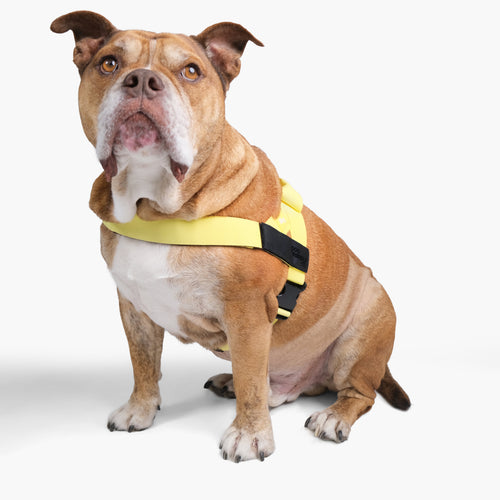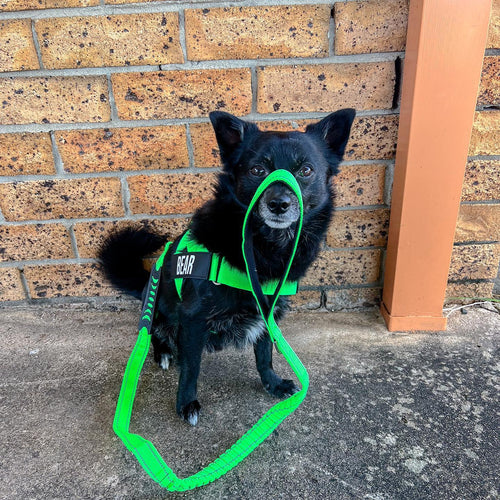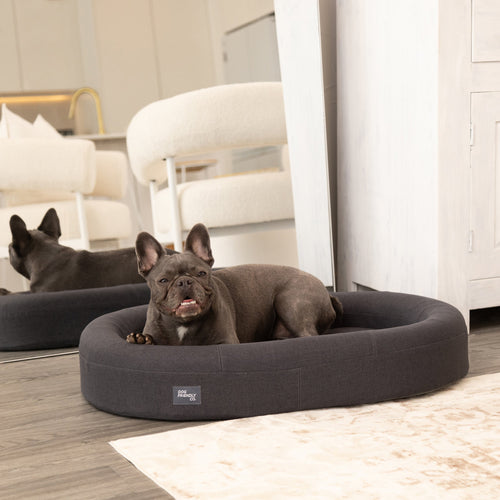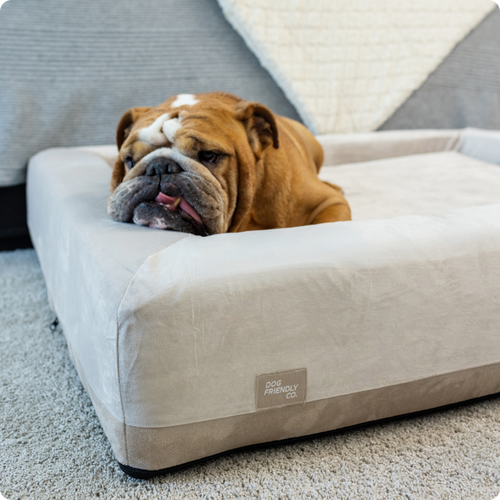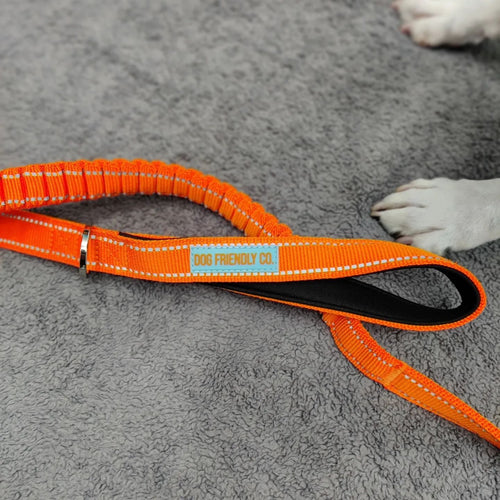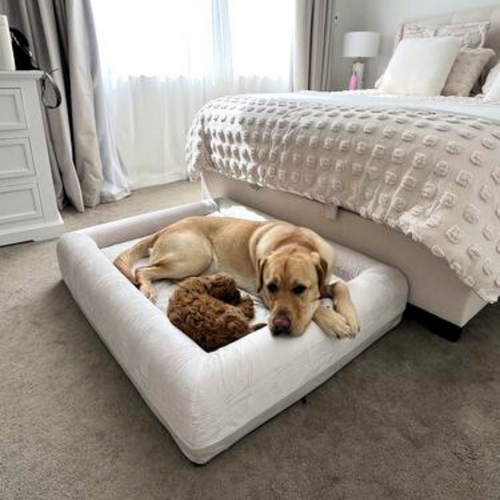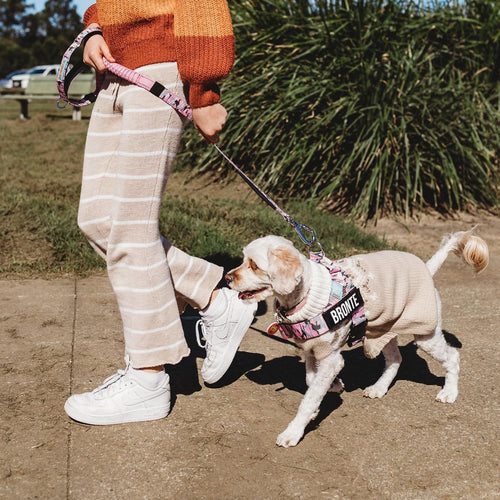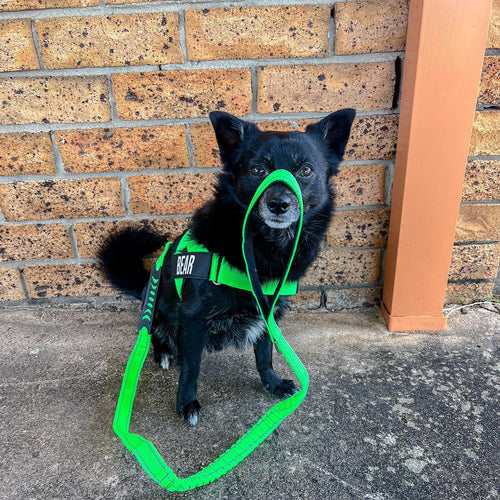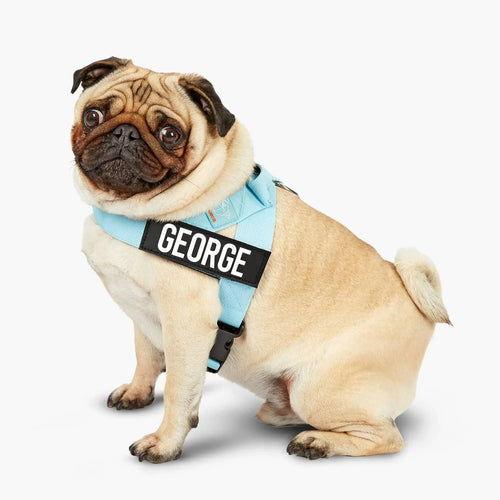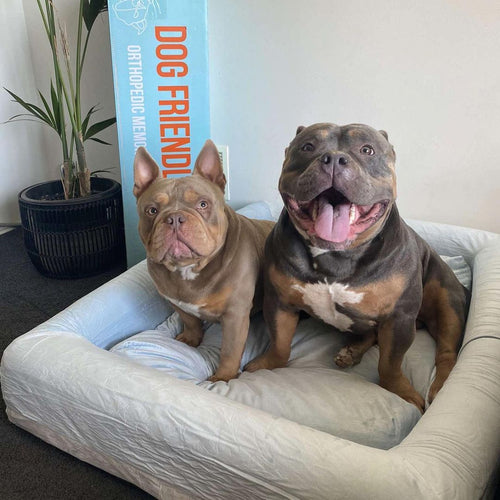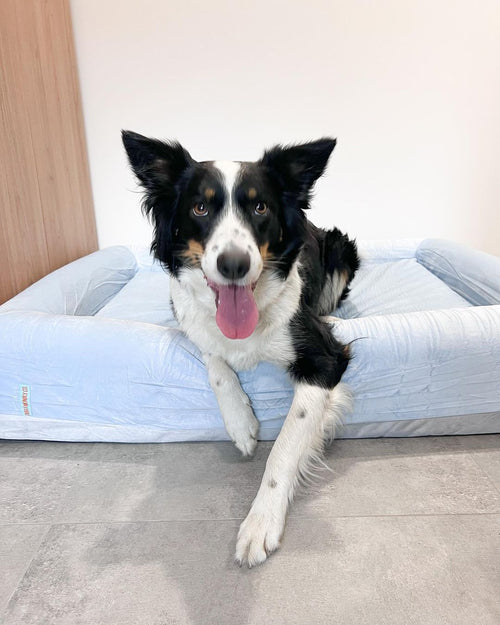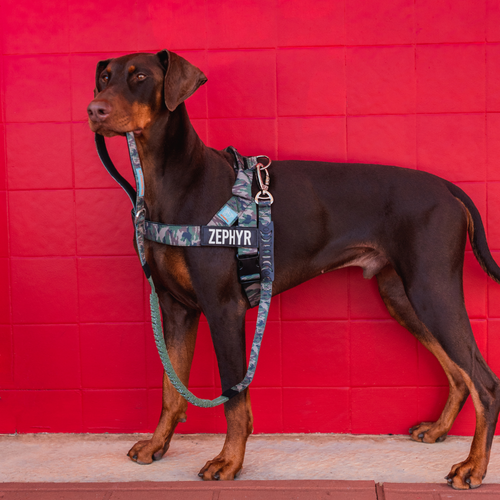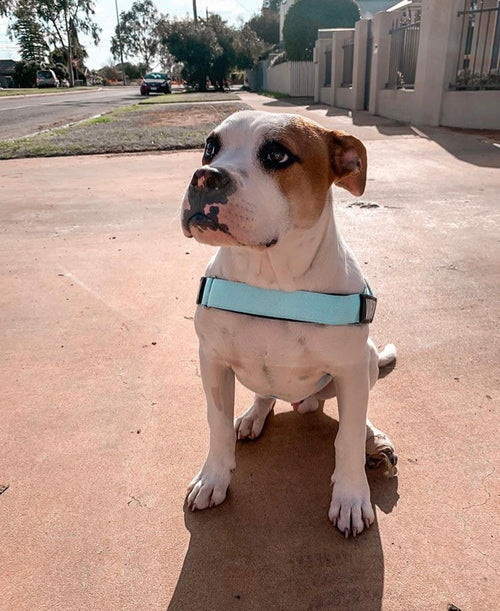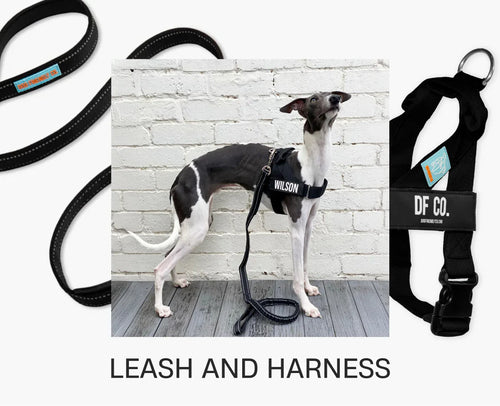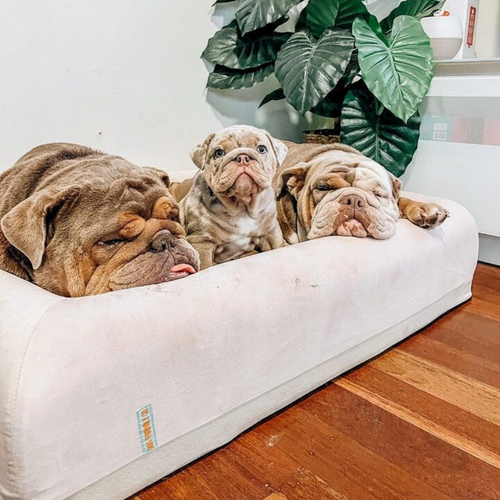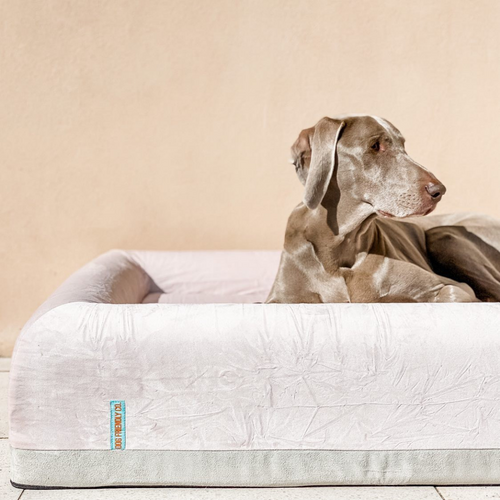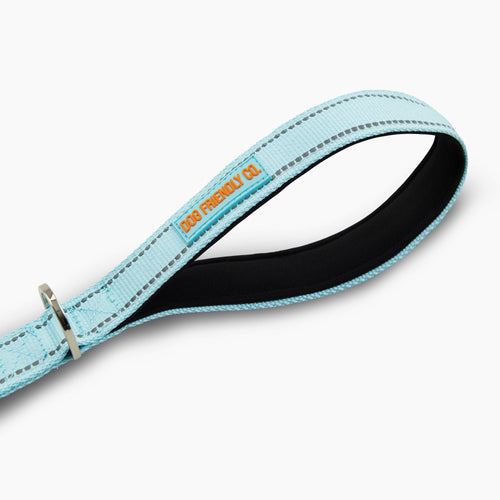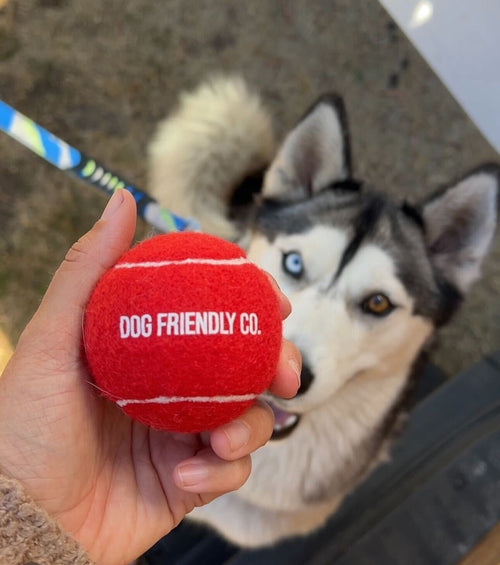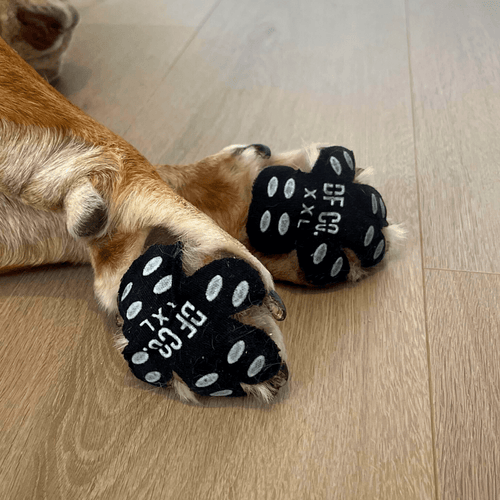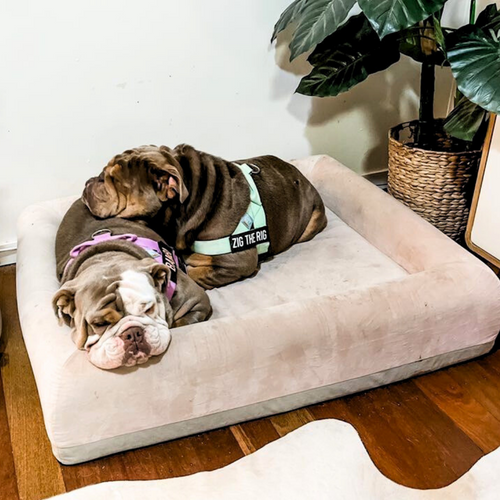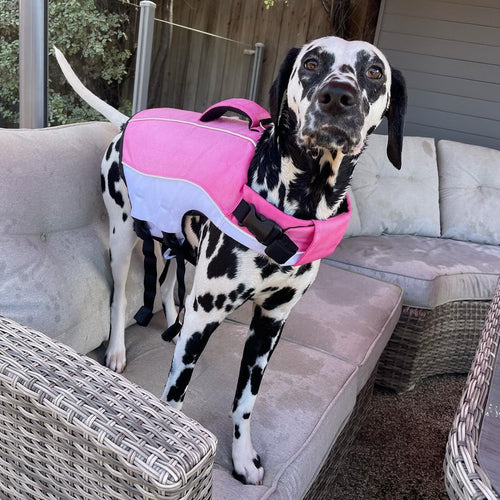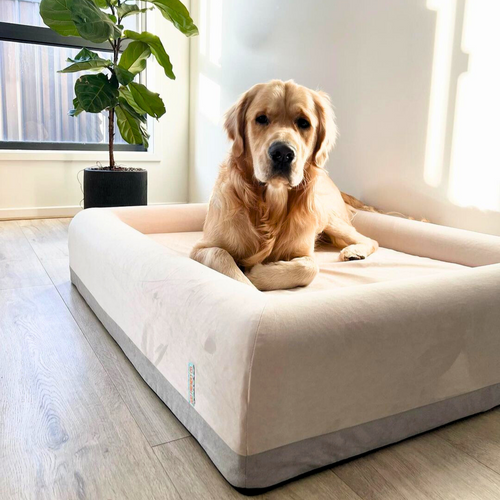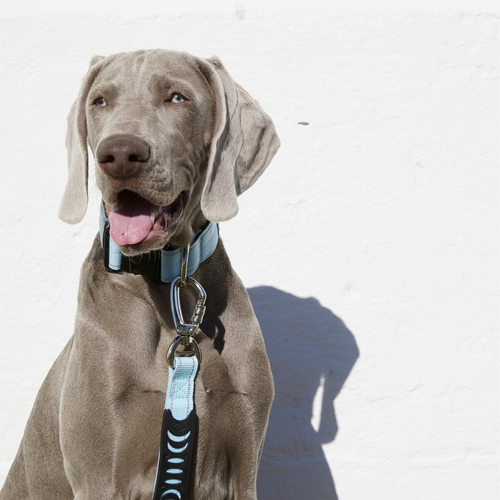Comfort for Canines: Soft Beds vs. Hard Beds
Ever noticed your dog circling their bed for what feels like forever before finally settling down? Or maybe they’ve claimed the couch as their favourite nap spot, leaving their bed untouched. It raises an interesting question—do dogs actually care if their bed is soft or firm?
In this blog, we’ll explore whether dogs prefer hard or soft dog beds. Plus, the factors that influence their preferences, as well as how to choose the right bed for your dog.
Understanding Bed Preferences in Dogs
Dogs are known for their deep sleep, with adult dogs often napping anywhere from 8 to 13 hours a day, depending on their age, breed, and activity level. When it comes to their bed, dogs generally look for a space where they feel comfortable and safe. This could be a spot close to you, like the couch or even your bed, where they can feel your presence.
Your dog may also prefer a cosy corner or a sunny spot by the window—places where they can stretch out and rest without interruptions. They might even circle their bed before settling down—a behaviour that goes back to their wild ancestors, who would patrol their resting posts to make sure they were safe.
Speaking of their natural instincts, dogs are hardwired to seek out comfort and security in their environment. This stems from their history as pack animals, where having a safe resting place was key for survival. When choosing a bed, your pup may gravitate towards spaces that make them feel protected—whether it’s a firm, supportive surface or something softer that provides a sense of enclosure.
What Shapes Your Dog’s Bed Preferences?
Figuring out the ideal bed for your dog isn’t as simple as picking out the fluffiest one. Their age, size, sleeping habits, and a few other factors all play a role in choosing what will make them feel most at home.
Age and Life Stage
Puppies and younger dogs often prefer softer beds for comfort and warmth, as the extra cushioning helps ease the pressure on their developing bones and joints. Plus, soft surfaces can mimic the warmth and security of their mother’s body—or yours—giving them that extra sense of security.
On the other hand, older dogs benefit from firmer beds, as they provide more support. Just like humans, getting up and down can be tricky for senior dogs with arthritis or joint pain. A firmer surface helps alleviate discomfort, especially for dogs dealing with injury or illnesses, such as hip dysplasia or vestibular disease.
Size and Weight
Your dog’s size and weight also have a big impact on their bed preference. Larger breeds like German Shepherds and Labrador Retrievers typically need more support to distribute their weight evenly and prevent their joints from straining.
Meanwhile, smaller dogs generally don’t require as much cushioning. While they can still benefit from a bed that provides gentle support, a softer bed is usually enough to give them a cosy spot to curl up, without putting extra pressure on their little joints.
As for weight, heavier dogs need firmer beds to avoid sinking too deep into the mattress. If their bed is too soft, your dog might feel trapped and uncomfortable, while a firmer bed provides more stability and helps alleviate joint stress. That said, lighter dogs, like Chihuahuas and Dachshunds, may prefer a softer bed that gives a bit more cushioning for their delicate frames.
Health and Physical Condition
Dogs with joint pain, arthritis, or muscle problems often benefit from firmer beds. These beds provide the support they need while helping reduce pain and stiffness. A firmer surface helps keep their body aligned and offers more stability, which is especially important for older dogs or those dealing with chronic pain.
If your dog is recovering from surgery or injury, the right bed can greatly support their healing process. A bed that offers firm, supportive cushioning keeps pressure off their injured areas while still providing comfort. There are also beds designed for recovery, which have extra padding or memory foam to distribute your dog’s weight evenly. These beds make it easier for your pup to rest without aggravating their injuries and give them the best chance at a speedy recovery.
Sleeping Position
Your dog’s preferred sleeping position will also tell you a lot about the type of bed that will work best for them. If your dog likes to curl up into a tight ball, they may feel more secure in a softer bed, where they can nestle in and feel supported from all sides. On the other hand hand, dogs that prefer to sprawl out and stretch their legs might need a firmer bed for that added space and stability.
Some dogs love to nestle into their beds and burrow into the softest fabrics they can find. If that sounds like your pup, a soft bed is perfect for letting them sink in and get nice and cosy. However, dogs who like to stretch out and claim more space will benefit more from a firmer surface. In addition to the support, firmer beds give them more freedom to stretch their legs without fully sinking in, which helps them get comfortable as they doze off.
Climate and Environment
If you live in a warmer area, your dog might prefer firmer, cooler beds. Soft, plush bedding tends to trap heat and can be uncomfortable as the temperature rises. Firmer beds allow for better airflow to help your pup feel cool while they sleep. In cooler regions, your dog might lean towards a softer, more insulated bed for those chilly nights. Soft beds with thick padding or memory foam help trap warmth and keep your pup cosy when temperatures drop.
The Great Bed Debate: Hard or Soft Dog Beds?
You might be wondering how much of a difference there really is between a hard or soft bed—and how do you even tell which one’s which? Not every brand offers a range with different mattress options or firmness levels, so it can be tricky to know what’s best for your dog.
Below, we break it down for you to make the decision a little easier. We’ll go over what to look for in both soft and firm beds to help you decide which option will give your dog the best sleep.
Hard Beds
- Advantages: Hard beds offer great support, which makes them ideal for dogs with joint issues or those who need a bit more stability while resting. The firm surface evenly distributes their weight to reduce pressure on the joints, which can be especially helpful for older dogs. Plus, these beds are often more durable, holding up to daily pawing and general roughhousing dogs tend to dish out.
- Disadvantages: While hard beds provide support, they might not be the most comfortable for every dog. Smaller breeds or dogs with less natural padding may find them too firm. For dogs who like to curl up or sink into their bed, the hard surface can feel too harsh and leave them unsettled.
Soft Beds
- Advantages: Soft beds are all about comfort, making them a favourite for dogs who love to curl up and feel cradled as they rest. They’re also great for staying warm and offer a cosy spot to nestle in when the nights turn chilly.
- Disadvantages: That said, soft beds aren’t suitable for every dog. Softer beds tend to flatten over time, especially if your dog likes to plop down with enthusiasm. For heavier dogs or those with joint pain, the lack of support can make them less suitable.
How to Choose the Right Bed for Your Dog
Finding the right bed for your dog isn’t just about picking something that looks good—it’s about making sure they’re as comfortable as possible. A little extra thought goes a long way in keeping your pup happy and well-rested.
Assessing Your Dog’s Needs
- Health Considerations: If your dog has arthritis, hip dysplasia, or other health concerns, their bed can make a real difference in their quality of life. Look for options that offer the right level of support to ease pressure on their joints and improve sleep quality. Memory form or orthopaedic beds reduce pressure on sore spots and make movement less of a struggle for them.
- Behavioural Considerations: Pay attention to your dog’s favourite sleeping spots at home. Do they sprawl out on the floor, curl up in a corner, or claim the couch as their own? Their habits can tell you a lot about the type of bed they’ll love most. If your dog prefers sleeping on the floor, a firmer surface might be best, while those who love the couch may enjoy something softer with extra cushioning.
Trying Different Options
- Test Different Beds: It can be helpful to try both hard and soft beds to see which one your dog prefers. Some dogs love a firmer surface for support, while others might sink into a soft bed for the comfort they crave. Testing a few options will give you a better idea of what makes your pup the happiest.
- Consider Hybrid Beds: If you’re still unsure, a hybrid bed just might be the answer you’re looking for. These beds combine the best of both worlds, offering a supportive base with a soft top layer for comfort. It’s a great way to get the balance just right without having to pick just one.
Specific Bed Recommendations
- Orthopaedic Beds: For older dogs or those dealing with joint pain, this is an excellent option. Orthopaedic beds give more support to relieve pressure on sore joints. This is an excellent option if your dog is recovering from an injury as well.
- Cushioned or Pillow Beds: If your dog loves to curl up and nestle into bed, a cushioned or pillow-style bed is a great choice. The soft, plush surface will provide them with the cosy, snug feeling they crave, making it the perfect spot for a restful sleep.
- Elevated Beds: These beds offer a more supportive surface and keep your dog off the ground. This improves airflow and prevents them from overheating, especially on particularly hot days. Elevated beds are perfect for keeping your dog comfy and their paws cool.
Material Considerations
- Durability: Durability is another important factor to consider, especially if you have a larger or more active dog. All that running, jumping, and digging can really take a toll on their bedding over time. Opt for beds made from high-quality materials that can hold up with regular use.
- Ease of Cleaning: Beds that are easy to clean are a must, especially if your dog has a thick coat or enjoys rolling around outdoors. Soft beds, while comfy, can easily collect dirt, hair, and even stains, so look for ones with removable, washable covers or materials that wipe clean easily. This way, you can keep your dog’s bed fresh without a hassle.
Dog Bed Myths You’ve Probably Heard
There are a couple of myths when it comes to dog bed preferences that don't quite hit the mark. Let’s take a closer look at these common misconceptions and see what’s really true for your pup.
“All dogs prefer soft beds.”
It’s easy to assume all dogs want a soft, plush bed, but the truth is that preferences can vary a lot. While some dogs love a cushioned bed, others—especially larger breeds or those with joint problems—might prefer a firmer, more supportive surface. So the idea that “all dogs prefer soft beds” is more of a one-size-fits-all myth than reality.
“Hard beds are uncomfortable.”
Some dog owners think hard beds are uncomfortable, but that’s not always the case. For dogs with arthritis or joint pain, a firm bed provides just the right amount of cushioning. The added support relieves pressure on the joints, so while it may feel stiff to us, it’s just what some dogs need to sleep comfortably.
Helping Your Dog Sleep Better
When it comes to picking the perfect bed for your dog, there’s no one-size-fits-all solution. A dog’s bed preference depends on a bunch of factors, including their age, health, size, and how they like to sleep. Keeping these in mind will help you pick the bed that’s just right for your pup.
By understanding your dog’s needs, you’ll be able to choose a bed that helps them rest easy and wake up ready for your next adventure. After all, a comfortable dog is a happy dog!
If you’re still not sure what’s best, take a good look at how your dog sleeps and what they’re drawn to. And, if you’re really unsure, have a chat with your vet to help you make the best choice.

















